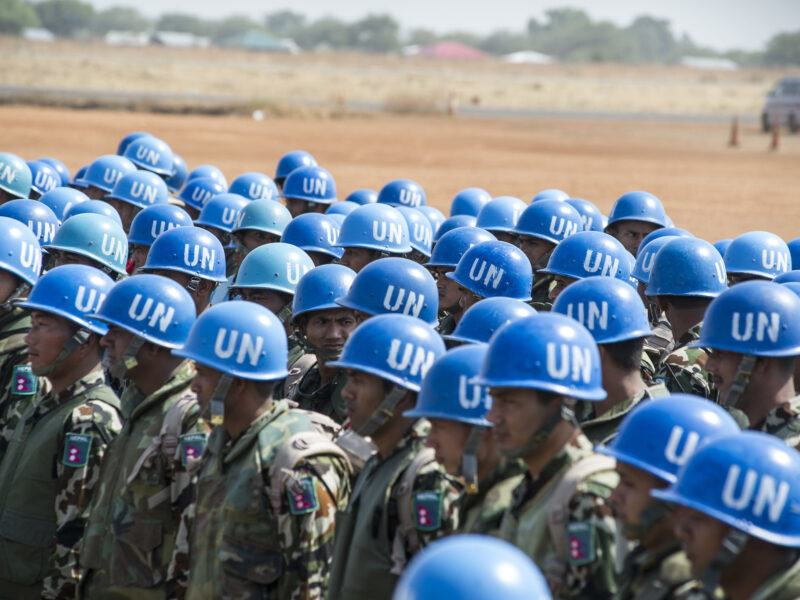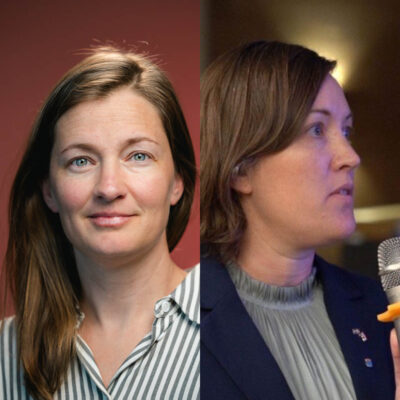Peacebuilding, natural resource management and gender – all intertwined
When we read about the role of natural resources in countries affected by fragility or conflict, the stories are usually grim. We read about armed groups, criminal gangs and governments fighting over land and access to valuable resources, about exploitation of communities and destruction of the environment. The resources fuel the conflict as armed groups exploit the natural wealth of the territories they control. In West Africa, blood diamonds funded rebel groups, the so-called Islamic State made enormous profits from the Iraqi oil fields, and the Colombian FARC depended on drugs and gold. The impacts are far-reaching and chances are that the device you are using to read this blog contains conflict minerals from mines in eastern Democratic Republic of Congo controlled by armed groups.
Yet, natural resources also hold an important potential for peacebuilding and economic, social and political empowerment. For better or worse, natural resources are the economic mainstay of many countries emerging from conflict. In rural and remote areas, the environment and natural resources are the main sources of livelihoods and provide economic opportunities that do not require major investments or formal training. In order to realize the peacebuilding potential, environmental factors and natural resource issues need to be part of the peace process and peacebuilding efforts. Only then can the management of water, land or minerals facilitate dialogue between communities, build trust between citizens and the state, and provide for sustainable development. In order to avoid the resource curse and the paradox of plenty, democratic, transparent, inclusive and participatory governance is key. Without ensuring that institutions that manage natural resources act in accordance with human rights and the rule of law, that revenues are shared and that natural resources are exploited in environmentally sustainable ways peacebuilding benefits won’t materialize. This idea lies at the core of UN Environment’s Environmental Cooperation for Peacebuilding Program and the concept of environmental peacebuilding promoting the governance of natural resources and the environment for sustainable peace.
A factor often ignored is the gender dimension. Changing that is the goal of the Joint Program on Gender-Responsive Approaches to Natural Resources Management for Peacebuilding by UN Environment, UNDP, UN Women and the Peacebuilding Support Office. Seconded from FBA, I have been supporting the work of the Joint Program since last December. Based on a flagship report, the four partners joined forces to address the different roles of women and men in relation to natural resources in conflict-affected countries in order to realize the peacebuilding opportunities of integrating gender into natural resource management. By recognizing the links between peace, gender and natural resources, the Joint Program embodies the spirit of the Agenda 2030 and Sustaining Peace and is part of the exciting drive within the United Nations and beyond to improve the efforts to achieve sustainable development and peaceful, just and inclusive societies.
Traditional gender roles in many societies see women as the primary providers of food, water and energy while men focus on resource-related commercial activities and decision making. As a result, women and men have diverging interests and are affected differently when access to and quality of natural resources change, which is often the case during and after conflict. The high dependence of women on natural resources makes them particularly vulnerable to changes. This has important implications for community welfare in post-conflict settings, where up to 40 percent of households are female-headed. For example, armed groups pose threats to women and girls leaving their communities to fetch water or working the fields. Women are also exposed to environmental degradation caused by activities such as illegal mining and the use of mercury that pollutes rivers and destroys livelihoods, as it is for example in the case of Colombia.
At the same time, these traditional roles change during and after conflict. As men get drafted into the military, join armed groups or move to cities, women engage in income-generating activities and decision making. Building on these shifting roles in peacebuilding can break down barriers to women’s political empowerment by promoting their role in the governance of natural resources. Realizing the economic potential of women will contribute to their empowerment and benefit the economic recovery of society as a whole.
Without including a gender dimension, inequalities in the access to natural resources and in society as a whole will persist. Women might still not be allowed to own land, women might still be barred from accessing markets to sell produce or women might still not be represented in decision making on natural resources. By now, the evidence that more inclusive societies are more peaceful and that women and men benefit from gender equality is overwhelming. It is high time to integrate gender in natural resource management to sustain peace.
av Christian Altpeter








